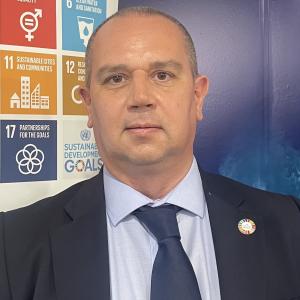Economists Discuss a Transition Beyond GDP Per Capita For Jamaica’s Sustainable Development
10 May 2024
Today, the Jamaica Economy Panel (JEP) publishes its twenty-first discussion, titled “Beyond GDP per capita for Jamaica’s Sustainable Development.”
The JEP discussion paper examines the possibility of adopting measures Beyond GDP to gauge sustainable development in Jamaica. It addresses concerns regarding the effectiveness of GDP per capita in measuring development progress, especially in terms of sustainable development.
The JEP discussion recognizes the global reliance on GDP per capita as a key measure of economic activity as well as its limitations in capturing multidimensional development indicators as part of assessing sustainable progress.
According to Dr. Nadine McCloud, Senior Lecturer, Department of Economics, University of the West Indies Mona, Beyond-GDP measures designed by the PIOJ and the UNEP have addressed some of the challenges.
“There is broad consensus that using GDP per capita as a metric for economic performance and development is tantamount to viewing a country and its citizens through a narrow and severely biased lens fraught with many ills,” Dr. McCloud said. “The most critical input to the production of any useful data-driven measure is data, which are subjected to, for example, institutional and governmental barriers,” Dr. McCloud added.
Introducing a new development measurement tool for Jamaica comes with its share of challenges. The JEP panel emphasized several hurdles, including inadequate data on non-economic aspects and challenges in quantifying intangible assets. Additionally, resistance from entrenched institutions and policymakers accustomed to GDP-focused methods, along with limited awareness among policymakers, stakeholders and the public regarding the limitations of GDP and the advantages of alternative measures.
Responding to the survey results, Mr. Dennis Zulu, United Nations Resident Coordinator, agreed that “Moving beyond GDP will require committed collective efforts among various partners and stakeholders to research, design, finance and educate on new measurement tools in the years to come.” He added that “The United Nations is committed to working with the government to implement more nuanced development measurement tools like Beyond-GDP for a more adequate measure of Jamaica’s sustainable development progress as well as for more effective development planning.”
Overall, the JEP Panellists agreed that the advancements in wealth accounting provide a deeper comprehension of both the quantity and quality of growth and development. As highlighted by Dr. Stuart Davies, Senior Economist, UN Resident Coordinators Office.
“Recent advances in wealth accounting, which go beyond GDP, can enable a better understanding of not only the quantity but also the quality of growth and development. Development planners, decision-makers, and practitioners can now better understand the interlinkages and trade-offs between national assets, and reflect these in their policies, projects and programmes to achieve sustainable development more effectively. For small island developing countries, like Jamaica, these new wealth accounting tools enable more nuanced approaches to development that enhance not just future prosperity but also resilience in all its forms,” Dr. Davies said.
The Jamaican Economy Panel is part of a partnership between the United Nations Resident Coordinator’s Office (UNRCO) and the Department of Economics at the University of the West Indies (UWI) Mona. The JEP brings together economic, public-sector experts and development practitioners to address monthly socio-economic questions. These questions help to highlight relevant economic issues and the collective expertise of the panellists.
For more information on the Jamaican Economy Panel and for the results of this JEP discussion, visit here.

Dr. Nadine McCloud

















